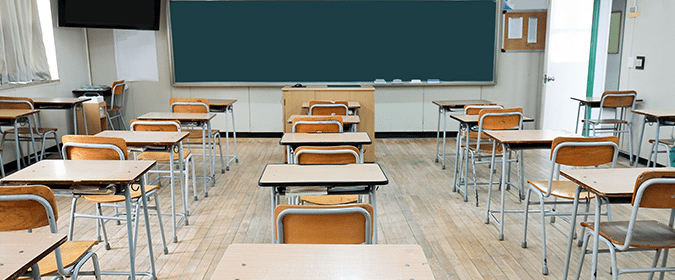 Tomorrow the News Literacy Project kicks off the first NewsLitCamp in Washington, D.C. at the Newseum. This full-day, interactive program is focused on connecting teachers with journalists and NewseumEd staff to provide them with better tools to help students sort fact from fiction. The program is free to teachers.
Tomorrow the News Literacy Project kicks off the first NewsLitCamp in Washington, D.C. at the Newseum. This full-day, interactive program is focused on connecting teachers with journalists and NewseumEd staff to provide them with better tools to help students sort fact from fiction. The program is free to teachers.
The News Literacy Project’s classroom program brought journalists into the classroom to talk about how news is reported. Damaso Reyes, Director of Partnerships at NLP, says students as well as teachers enjoyed that process, and NewsLitCamp sprung from a desire to reach a larger audience of educators.
The first camp will feature several staff from The Washington Post: national politics reporter, Robert Costa (also the host of PBS’s Washington Week); political investigations editor, Matea Gold; media columnist, Margaret Sullivan; assignment editor, Krissah Thompson; senior regional correspondent, Robert McCartney, who covers politics and policy in the greater Washington area; Wesley Lowery, who covers race, justice and law enforcement; and Eugene Scott, who writes about identity politics for The Fix.
The morning will start with a greeting, introduction and video from Marty Baron, Executive Editor of The Washington Post. From there, educators will learn about the misinformation and fake news landscape.
Reyes says they want teachers to understand the challenges students face when receiving information on social media.
The morning will be spent in break-out sessions where teachers can pick sessions that interest them. In the afternoon, the group will come together and have a free-range discussion about challenges they face and how to build a curriculum that develops the next generation of informed, engaged participants in civic life.
The NewsLitCamp can accommodate up to 150 educators. Reyes says the program is targeted at middle school and high school teachers around the District, but that the conversation about misinformation should start with elementary students.
“We have seen, especially after the 2016 election, a real weaponization of misinformation,” Reyes says.
While social media is still a relatively young tool, school-age children have grown up with it and it has permeated their entire lives.
“We feel the need for news literacy education has really increased,” he says.
There will be two more D.C.-area NewsLitCamps, one on June 18 at NPR and the other on August 28 at Bloomberg in Arlington, Virginia.
